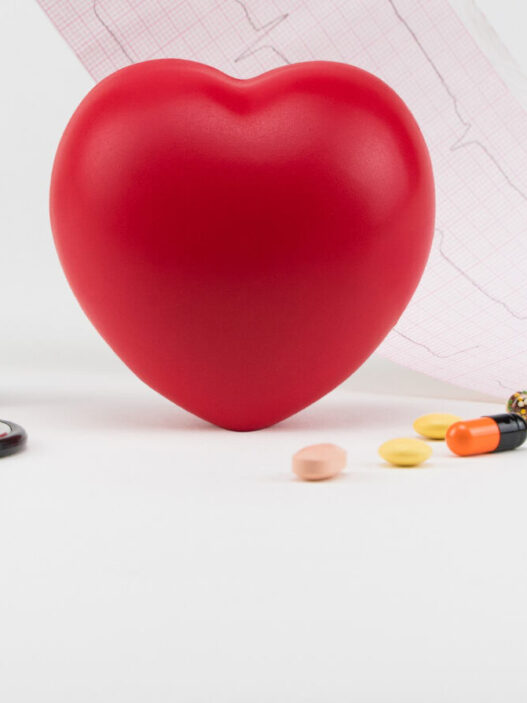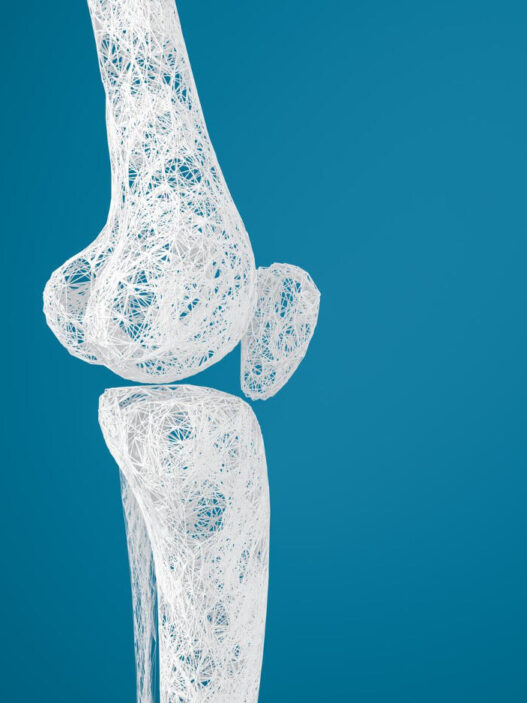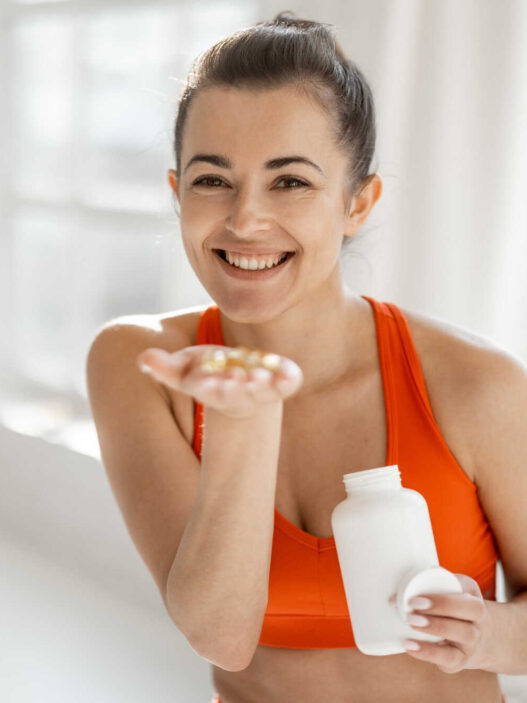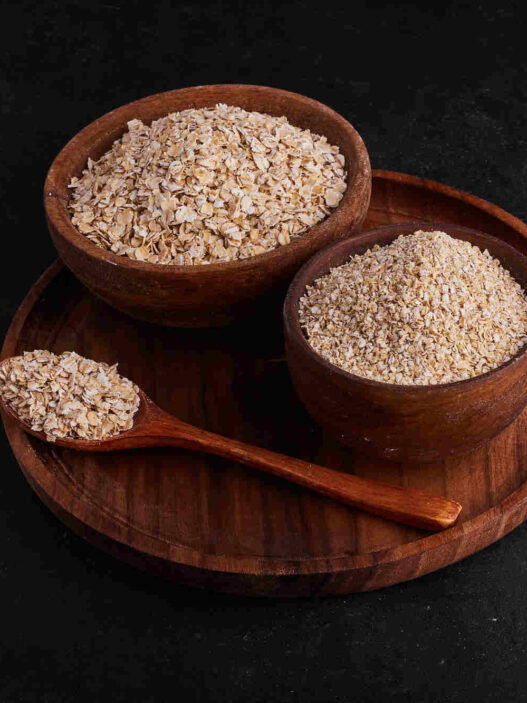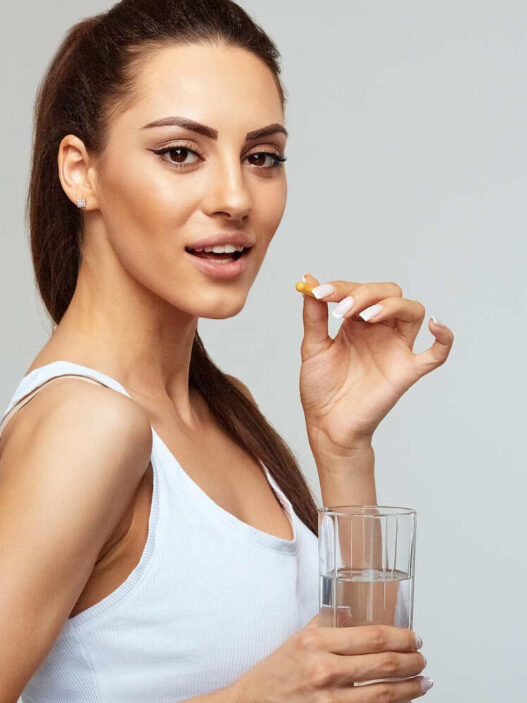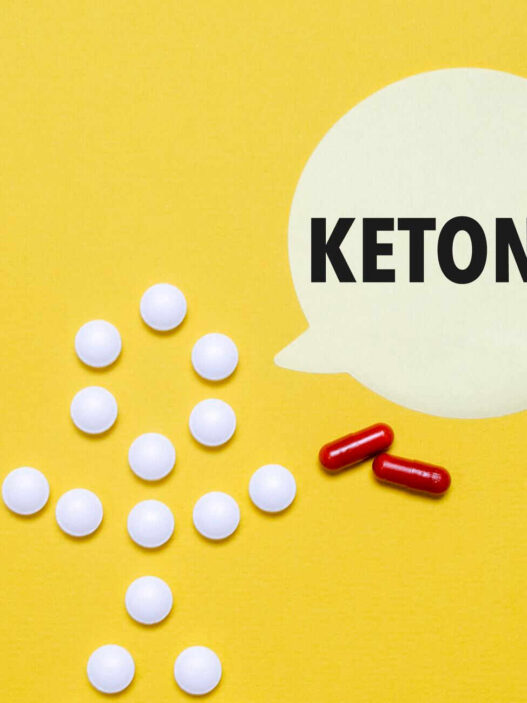Diabetes has become a major global health problem and its prevalence is increasing at an alarming rate. This is primarily due to rising obesity, sedentary lifestyle, physical inactivity, or poor diet, although genetic predisposition also exists in a few cases. As per the International Diabetes Federation (IDF), approximately 537 million adults are living with diabetes. With the increasing knowledge of plant constituents and their scientific validation, an alternate system of medicine is being increasingly considered by individuals looking to prevent dependence on allopathic medicine and reduce their side effects. There are several dietary supplements that are available over the counter on the shelf in the United States. However, selecting the right supplement requires careful research on its ingredients. Gluctose is one such dietary supplement that has been creating a buzz in the health industry. Here we provide you with literature reviews of the potential usefulness of Gluctose ingredients, possible side effects, and the science behind the ingredients used in Gluctose to provide you with the much-needed information you require for your blood sugar support. However, please note that this is only a guide, and any interpretation of your healthcare needs requires consultation with your physician or healthcare provider.
Diabetes – A Worldwide Health Concern
Diabetes mellitus is a condition that arises when the pancreas does not produce enough insulin or when the body cannot effectively use insulin (1). The three most common types of diabetes are type 1 diabetes (where the body’s defense system attacks the cells producing insulin resulting in less insulin), type 2 diabetes (where the body does not fully respond to insulin, called insulin resistance), and gestational diabetes (during pregnancy). Type 2 diabetes is the most common type of diabetes and occurs mainly in older adults, but also in children and adolescents.
However, the good news is that type 2 diabetes mellitus could be prevented following lifestyle interventions and dietary changes. Excess caloric intake with carbohydrates, sugary drinks and physical inactivity are major contributors to diabetes.
Diabetes, if not treated, can lead to several complications including retinopathy (disease of the retina of the eye), nephropathy (kidney disease), neuropathy (nerve disease), diabetic foot disease, and several other problems.
What is Gluctose?
Gluctose is a dietary supplement manufactured by Pharmaxa Labs that has been claimed to be an advanced blood sugar support formula. As per the official website (2), Gluctose contains all-natural ingredients, vitamins, and minerals that work together to support healthy blood sugar levels, boost glucose metabolism, encourage weight loss, enhances energy, maintain healthy insulin level and lower sugar and carb absorption. Certainly, these multiple benefits seem too good to be true. The claims require thorough Gluctose reviews on its ingredients. Let us introspect further to ascertain the truth behind the claims made.
20 Gluctose Ingredients On Its Official Label
Ingredient |
Amount | |
Herbs Extract | Banaba Leaf (1% extract) (Lagerstroemia speciosa) | 25mg |
| Licorice root extract (Glycyrrhiza Glabra) | 50mg | |
| Guggul Resin (10% extract) (Commiphora wightii) | 50mg | |
| Bitter Melon Fruit 10:1 extract (Momordica charantia) | 20mg | |
| Juniper Berry 4:1 extract (Juniper communis) | 6.25mg | |
| White Mulberry Leaf 5:1 extract (Morus alba) | 5mg | |
Herbs Powder | Cinnamon bark powder (Cinnamomum cassia) | 50mg |
| Gymnema Sylvestre Leaf Powder | 50mg | |
| Yarrow Flowers Powder (Achillea millefolium) | 25mg | |
| Cayenne Pepper Fruit Powder (40M HU/G) | 10mg | |
Minerals | Vanadium (as Vanadyl sulfate) | 200mcg |
| Magnesium (as Magnesium oxide) | 125mg | |
| Zinc (as Zinc oxide) | 7.5mg | |
| Manganese (as amino acid chelate) | 1mg | |
| Chromium (as amino acid chelate) | 67mcg | |
Vitamins | Vitamin C (as Ascorbic Acid) | 50mg |
| Vitamin E (as d-alpha tocopheryl succinate) | 10mg | |
| Vitamin B7 (as Biotin) | 300mcg | |
Others | Alpha Lipoic Acid | 30mg |
| Taurine | 25mg |
Gluctose Reviews on its 20 Ingredients –
Reviews of 6 Herbal Extracts in Gluctose for Blood Sugar Support
1. Banaba Leaf (Lagerstroemia speciosa)
Banaba (Lagerstroemia speciosa L.) has been used traditionally in many parts of the world particularly in Southeast Asia to treat diabetes mellitus. The active ingredient responsible for the blood sugar-lowering effect is corosolic acid and ellagitannins. In addition to antidiabetic effects, the extract also possesses antiobesity potential (3).
In a randomized clinical trial on 24 patients, Banaba leaf extract administration led to remission of metabolic syndrome, a significant decrease in blood sugar levels, triglycerides, very low-density lipoproteins, and total insulin secretion (4). A review of scientific experiments on animal studies and human clinical trials exhibited no discernible adverse effects with Banaba extracts (5).
2. Licorice Root Extract
Liquorice has been used as a traditional medicine since ancient times, particularly in Chinese medicine, and is also used as a sweetener due to its taste. It has been widely used for the treatment of diabetes mellitus either alone or in combination with other herbs.
A review of scientific studies on Licorice revealed that five flavonoids and three triterpenoids isolated from Licorice extract possess excellent antidiabetic activity (6). Licorice appears to be safe at the concentration employed in Gluctose. At several times higher concentrations, Licorice can cause hypertension and fluid retention.
3. Guggul Resin
Guggul gum resin from the plant Commiphora wightii has been used in Ayurvedic medicine for several years. The antidiabetic activity of Guggul Resin has been established by several experimental studies and the active ingredient responsible for the same in the extract was found to be Gluggusterone.
Interestingly, Guggul Resin possesses DPP-IV (dipeptidyl peptidase-IV) inhibitory activity. DPP-IV is an enzyme involved in glucose regulation. Several allopathic antidiabetic drugs like vildagliptin, sitagliptin, etc. have DPP-IV inhibiting action which is also found in Guggul Resin. This action of Guggul Resin was even demonstrated to be superior to Vildagliptin, an antidiabetic medicine used clinically (7). Guggul resin present in Gluctose, therefore, might produce actions similar to the allopathic medicine
4. Bitter Melon Fruit
Bitter melon, also known as karela, balsam pear, bitter gourd, or Momordica charantia is a popular fruit or vegetable used for diabetes in Asia, South America, and India (8). Bitter melon also reduces lipid levels. It is a nutrient-dense fruit with several bioactive chemicals, vitamins, minerals, and antioxidants. Scientifically, three ingredients isolated from bitter melon were found to possess hypoglycemic or blood sugar-lowering effects. These are charantin, polypeptide-p, and vicine.
It is rightly said ‘Food as Medicine’, which applies to Bitter Melon Fruit. Bitter melon fruit is safe to consume and there are no concerns about incorporating it in your diet.
5. Juniper Berry
Juniper berry has been obtained from various Juniper plant species, the most common is Juniper communis L., a woody plant grown in Asia, Europe, and North America. Juniper berries have scientifically demonstrated antioxidant, hypoglycemic (blood sugar lowering), and hypolipidemic (lipid-lowering) activities. Though Juniper berries are considered safe to consume, administration in high doses for a long duration is not advisable for persons with kidney disease.
Juniper berries have excellent blood sugar-lowering effect which in higher doses might lower blood sugar too much. Hence, it is advisable to not use them with patients taking other antidiabetic medications (9). If you are taking other antidiabetic medications, please consult your healthcare provider.
6. White Mulberry Leaf Extract
White Mulberry Leaves from the plant Morus alba have been used for centuries in traditional Chinese medicine. Research studies have proven the potential of mulberry leaf extract to reduce blood glucose levels and insulin response levels. It is also used as Mulberry tea to lower sugar levels (10). The plant is considered to be well-tolerated and safe.
In clinical trials, it was shown that it blunts the blood glucose responses of foods containing dietary carbohydrates, and hence can be beneficial for those trying to manage peak blood glucose after having certain foods (11). White Mulberry leaf extract in Gluctose can help supporting healthy blood sugar levels.
Reviews of 4 Herbs Powder in Gluctose for Blood Sugar Support
7. Cinnamon Bark Powder
Cinnamon bark powder has been widely used to treat diabetes and multiple studies have been carried out on the same. A systematic review of available studies reported cinnamon is able to reduce fasting blood glucose, and insulin resistance in type 2 diabetic patients and also pre-diabetic patients (12).
Further, cinnamon has been used for weight loss and the treatment of diabetes for centuries. Cinnamon is commonly used in cooking and in various dishes with no question of its safety in Gluctose as such.
8. Gymnema Sylvestre Leaf Powder
Gymnema sylvestre is a plant with hypoglycemic (blood sugar lowering) effects established in the traditional systems of medicine. The traditional claims for the management of diabetes have been verified by scientific studies where its extract has been standardized to produce its antidiabetic activity through PPARγ (13).
It is pertinent to note here that PPARγ is responsible for insulin-sensitizing actions and this mechanism has been established for a class of medicines known as thiazolidinediones. Studies suggest that Gymnema might have similar effects. Thus, Gymnema present in Gluctose supports mechanistically how Gluctose can contribute to maintaining blood sugar levels.
9. Yarrow Flowers Powder
Yarrow (Achillea millefolium) possess various medicinal activities such as expectorant, analgesic, anticancer, hypotensive, and anti-inflammatory (14). It has been used in Mexican folk medicine for the treatment of diabetes (15). Though experimental studies suggest the efficacy of Achillea millefolium extract as an antidiabetic, we could not find many clinical studies on the plant. Nevertheless, the traditional evidence and studies on animals suggest it has beneficial effects on diabetes.
10. Cayenne Pepper Fruit Powder
Cayenne pepper is synonym for Capsicum frutescens. Its active constituent is capsaicin. The active constituent capsaicin is demonstrated to reduce blood glucose levels (16). Several studies prove its role in weight loss and in improving glucose homeostasis. Thus, Cayenne pepper fruit can also be one of the ingredients supporting Gluctose role in managing healthy blood sugar levels.
Reviews on 5 Minerals in Gluctose for Blood Sugar Support
11. Vanadium
The role of Vanadium in diabetes mellitus has been proven since a long time ago (17). Vanadium salts have been scientifically proven to reduce hyperglycemia and improve insulin actions (18). Not only do they help reduce blood sugar, but they also reduce lipid (triglyceride) levels. In fact, Gluctose has claims to reduce both sugar and lipid levels.
12. Magnesium Oxide
Magnesium is known to improve glycaemic control in persons with diabetes. Magnesium also helps reduce insulin resistance (19). This has been proven in clinical trials. Thus, Magnesium present in Gluctose can help support blood glucose levels in addition to multiple other health benefits of Magnesium.
13. Zinc Oxide
There are several studies available to show that zinc oxide (in the form of nanoparticles) is known to improve glycaemic control and help reduce diabetic complications. Gluctose label does not specify if zinc oxide is in the form of nanoparticles or not. Nevertheless, zinc is an important mineral to improve immunity and health in general.
14. Manganese
Mn treatment improves glucose tolerance and insulin secretion in experimental studies (20). Further, a higher intake of manganese is associated with a lower risk of type 2 diabetes (21).
15. Chromium
Chromium, an essential mineral, is known to improve insulin actions and helps persons with type 2 diabetes. It was reported in a study that supplements containing chromium improve blood glucose control (22). Chromium supplements have been proven to be safe. As per the official label of Gluctose, this product must be avoided in conjunction with other dietary supplements which contain high levels of elemental chromium.
Reviews on 3 Vitamins in Gluctose for Blood Sugar Support
16. Ascorbic Acid (Vitamin C)
Vitamin C, also called ascorbic acid, has numerous health benefits including playing a role in enhancing immunity to diseases. Interestingly, recent scientific studies point towards its role in maintaining glycaemic control in patients with type 2 diabetes (23). However, it is not recommended as a therapy for the same.
17. d-Alpha Tocopheryl (Vitamin E)
The d-alpha-tocopheryl succinate (aTOS) is an analogue of vitamin E (alpha-tocopherol). This analogue of vitamin E has been studied for its anticancer potential. However, unlike other analogs of vitamin E, this one is not an antioxidant (24). Though scientific evidence of alpha-tocopheryl acetate and vitamin E in general as an antidiabetic was found, we could not find studies on this particular analog of vitamin E.
18. Biotin (Vitamin B7)
Biotin or vitamin B7 deficiency can impair blood sugar regulation. In a systematic review of scientific studies, it was observed that biotin supplements can decrease fasting blood glucose, total cholesterol, and triglyceride levels in patients with type 2 diabetes (25). Thus, it can not only provide blood sugar support but may also reduce lipid levels.
Reviews on 2 other Gluctose Ingredients
19. Alpha Lipoic Acid
Alpha lipoic acid is a well-established and powerful antioxidant. Scientific studies and clinical trials have shown that its supplementation help prevent diabetes and its complications including diabetic neuropathy, diabetic nephropathy, and cardiomyopathy. It has been observed that chronic high blood sugar can result in advanced glycation products and free radicals which is prevented by alpha lipoic acid (26).
20. Taurine
Taurine is a naturally occurring amino acid. It is safe and its supplementation was found to be beneficial in reducing HbA1c, fasting blood glucose and insulin resistance in patients with type 2 diabetes (27). Taurine also works by reducing advanced glycation end products and by acting as an antioxidant in the treatment of diabetes.
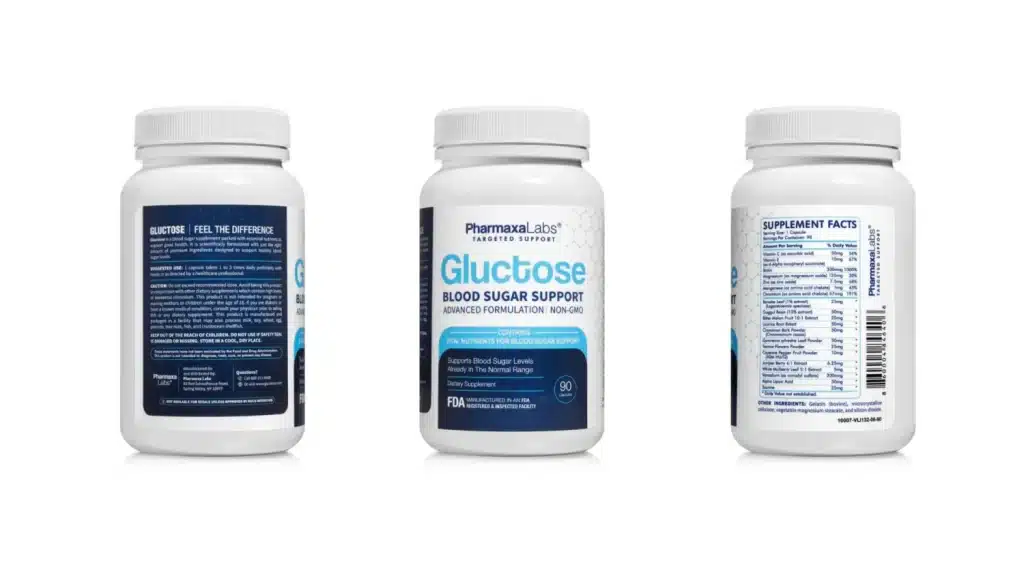
Gluctose Ingredients Benefits
- Natural ingredients
- Studies report the ingredients to effectively lower blood sugar levels.
- Most ingredients also reduce Insulin Resistance
- Few ingredients reduce triglyceride and low-density lipoprotein levels.
- Few ingredients may reduce complications including diabetic neuropathy, diabetic nephropathy and cardiomyopathy.
- Vitamins and minerals with antioxidant and immune boosting effects
- Additional weight loss by a few ingredients requires further confirmation.
Where to buy Gluctose? How to consume it?
Gluctose can be purchased from its official website gluctose.com (2). It has been manufactured by Pharmaxa labs in FDA registered and inspected facility. This does not mean that the product is approved by FDA. Dietary supplements are not regulated by the FDA. The product has been on the market for several years with positive reviews. However, as mentioned on the official website, individual results may vary. The product is not advisable for pregnant and nursing woman, or those having serious medical conditions, or a history of heart diseases. Further, as per the label, product is not recommended for children under the age of 18 years. The label on the bottle suggests supporting and maintaining blood glucose levels already in the normal range. The suggested use is 1 capsule to be taken 1-3 times daily preferably with meals. It is always advisable to consult your health care professional before consuming any supplement.
Conclusion
Based on the reviews of available studies on Gluctose ingredients, we can confidently say that Gluctose ingredients have been scientifically proven to provide blood sugar support and thus might help prevent diabetes and its complications.
The majority of the herbal ingredients present in Gluctose have a history of traditional use which is also backed by modern scientific evidence. It is important to note here that this article is primarily focused on its antidiabetic potential based on reviews of Gluctose ingredients and in no way provides evidence for multiple other benefits claimed by the manufacturer on their website including weight loss, reducing bad cholesterol and promoting metabolism which can be a focus of any subsequent reviews on Gluctose.
Most of the ingredients present in Gluctose appear to be safe. However, a thorough review of literature could be carried out to ascertain any adverse effects at higher doses or any potential risks.
Finally, we must not forget that in addition to taking dietary supplements or medications, type 2 diabetes can also be managed with lifestyle interventions which we must incorporate into our daily routine.
Disclosure – This is a sponsored post and we have received compensation for publishing it. The products belong to a third party, and we have neither used nor endorsed any products. Our in-house writers have often written, and reviewed content based on trustworthy scientific literature or as the manufacturer claimed on their website. Here we would like to disclose that it is not possible to refer to all the studies or scientific literature available in the public domain. Hence, we disclaim any and all liability to any party, company, or product for any direct, indirect, implied, punitive, special, incidental, or consequential damages arising either directly or indirectly due to the use of content published in this article. Please also read our medical disclaimer.
Sources
- https://idf.org/
- https://www.gluctose.com/
- https://www.ncbi.nlm.nih.gov/pmc/articles/PMC3468018/
- https://pubmed.ncbi.nlm.nih.gov/34726501/
- https://www.ncbi.nlm.nih.gov/pmc/articles/PMC3468018/
- https://pubmed.ncbi.nlm.nih.gov/32763420/
- https://www.ncbi.nlm.nih.gov/pmc/articles/PMC8641738/
- https://www.ncbi.nlm.nih.gov/pmc/articles/PMC4027280/
- https://www.ncbi.nlm.nih.gov/pmc/articles/PMC6726717/
- https://www.ncbi.nlm.nih.gov/pmc/articles/PMC5321430/
- https://nutritionandmetabolism.biomedcentral.com/articles/10.1186/s12986-021-00571-2
- https://pubmed.ncbi.nlm.nih.gov/31425768/
- https://pubmed.ncbi.nlm.nih.gov/27834124/
- https://globalresearchonline.net/journalcontents/volume9issue2/Article-022.pdf
- https://www.sciencedirect.com/science/article/abs/pii/S0378874117314678
- https://pubs.acs.org/doi/10.1021/acs.jafc.7b00132
- https://pubmed.ncbi.nlm.nih.gov/7482987/
- https://academic.oup.com/biohorizons/article/doi/10.1093/biohorizons/hzt002/301904
- https://pubmed.ncbi.nlm.nih.gov/24909487/
- https://www.ncbi.nlm.nih.gov/pmc/articles/PMC3578995/
- https://pubmed.ncbi.nlm.nih.gov/32295807/
- https://pubmed.ncbi.nlm.nih.gov/15208835/
- https://pubmed.ncbi.nlm.nih.gov/33472962/
- https://www.naturalmedicinejournal.com/journal/alpha-tocopheryl-succinate-cancer-care
- https://www.ncbi.nlm.nih.gov/pmc/articles/PMC9659605/
- https://pubmed.ncbi.nlm.nih.gov/33461470/
- https://www.sciencedirect.com/science/article/pii/S266656622200034X.
This is a sponsored post and the views expressed are of the sponsor/author/third party and not of Healthieyoo’s editorial team. Please read our editorial policy, affiliate disclosure, and medical disclaimer.




